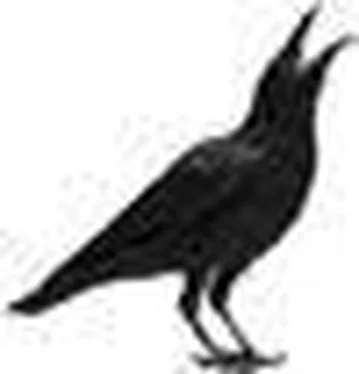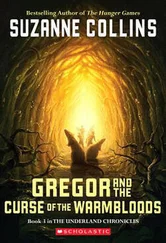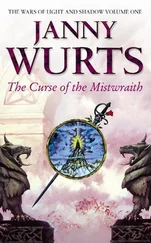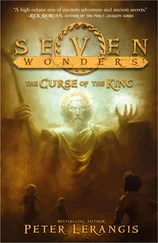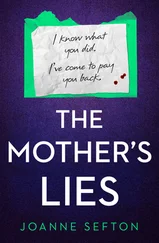Warthrop’s prey veered off the path and into the woods. The doctor followed, and I lost sight of both for a moment. The racket of their scuffle led me to where they rolled on the ground locked in each other’s arms, first the doctor on top, then his opponent. I stopped a few feet from the tussle and drew the silver knife von Helrung had given me. I did not know if I would be able to actually use it, but it gave me comfort to hold it.
I would not need it for anything other than comfort, for I quickly discerned the man was not John Chanler but the same raggedy figure who had been stalking us since our arrival in New York. He fought bravely enough, but he was no match for the monstrumologist, who had by this point managed to straddle him, one hand clutching his scrawny neck, the other pushing down on his narrow chest.
“Don’t hurt me!” the man squealed in a high-pitched English accent. “Please, Dr. Warthrop!”
“I’m not going to hurt you, you fool,” gasped the doctor.
He released the man’s neck and sat back upon his chest with his legs thrown on either side of his torso. The doctor’s catch turned his light gray eyes beseechingly in my direction.
“I can’t breathe,” he wheezed.
“Good! I should squeeze the life out of you, Blackwood,” said the doctor. “What in the devil do you think you’re doing?”
“Trying to breathe.”
The doctor heaved an exaggerated sigh and pushed himself to his feet. The man clutched his stomach, sat up, cheeks ablaze, sweat shining on his high forehead. His nose was extraordinarily large; it dominated his pinched face.
“You’ve been following me,” the doctor accused him.
Blackwood was staring at me—or rather at the deadly object in my hand.
“Could you ask the young man to put away the knife?”
“He will,” said the doctor. “ After he runs you through with it.”
The monstrumologist held out his hand to Blackwood, who accepted it, and Warthrop hoisted him to his feet. Then the thin man’s face split open into a wide unabashed grin, as if they had dispensed with some kind of bizarre preliminaries. He thrust his hand toward the doctor’s chest.
“How have you been, Dr. Warthrop?”
Warthrop ignored the gesture. “Will Henry, may I introduce Mr. Algernon Henry Blackwood, a reporter who masquerades as a spy when he isn’t a spy masquerading as a reporter.”
“Not much of either, really.”
“Is that so? Then, why have you been lurking outside my hotel since I got here?”
Blackwood grinned sheepishly and lowered his eyes. “I was hoping for the same thing I always hope for, Dr. Warthrop.”
The doctor was nodding slowly. “That’s what I suspected—and what I hoped. Blackwood, you look terrible. When was the last time you had something decent to eat?”
The monstrumologist had an idea.
And so it was that I found myself, a half hour later, sitting on a sofa of rich velvet in the lavishly adorned sitting room of a private “gentlemen’s club,” as such organizations were called in that day, situated within sight of the more famous Knickerbocker Club.
Like the Knickerbocker, the club to which Warthrop belonged prided itself on its exclusiveness. The membership was limited (exactly one hundred, not one more, not one less), and the identities of its members were a closely guarded secret. No man in my memory ever publicly acknowledged his membership in the Zeno Club, and its existence, as far as I know, was never exposed or advertised.
Normally guests were not allowed within the rarified atmosphere of the club, but certain members, Warthrop among them, were a bit more equal than others. His knock was answered by the doorman, who glared down his nose at us through the small trapdoor situated beneath the brass plaque with the initials ZC. He took in Blackwood’s ill-fitting suit, and it was clear he was not pleased, but without a word he turned and escorted us into the deserted sitting room, where Blackwood seemed to shrink before my eyes, intimated, perhaps, by the Victorian excess of the décor. Our orders were taken by another member of the staff with the same moribund attitude as the doorman—a gin and bitters for Blackwood, and a pot of Darjeeling tea for the doctor.
Our waiter turned to me, and my mind went blank. I was thirsty, and a glass of water would have been most welcome, but, like Blackwood, I was somewhat intimidated by the surroundings and the barely disguised disdain of the staff. Warthrop rescued me, whispering something into the waiter’s ear. The man glided silently away with a tread as measured and sedate as an undertaker’s.
A few moments later he returned with our drinks, setting before me a tall, clear glass in which a caramel-colored liquid bubbled. I eyed my drink doubtfully—why would someone serve a boiling beverage in a glass?—and the doctor, who missed nothing, smiled slightly and said, “Try it, Will Henry.”
I took a tentative sip. My attendant delight must have been evident, for Warthrop’s smile broadened, and he said, “I thought you might like it. It’s called Coca-Cola. Invented by an acquaintance of mine, a gentleman by the name of Pemberton. Not to my taste, really. Too sweet, and the inclusion of carbon dioxide is an inexplicable and not altogether pleasant addition.”
“Carbon dioxide, did you say?” asked Blackwood. “Is it safe to drink?”
Warthrop shrugged. “We shall observe Will Henry carefully for any negative effects. How do you feel, Will Henry?”
I told him I felt very good, for I, with half of the fizzy concoction already in me, was feeling very good indeed.
Blackwood’s gray eyes darted about; his hands moved restlessly in his lap. He was waiting for Warthrop to take the lead. The great scientist had never so much as granted him the time of day, and now here he sat across from him at the most exclusive club in New York. It was a wonder—and a riddle.
“Blackwood, I need your help,” the monstrumologist said.
The Englishman’s eyes widened at this confession. It was clearly the last thing he’d expected Warthrop to say.
“Dr. Warthrop—sir—you know I have only the deepest admiration and respect for you and your important work—”
“Spare me the sycophantic drivel, Blackwood. For the past two years you’ve been hounding my every step, to what purpose I can only guess, though I suspect it has more to do with scandal and gossip than admiration and respect.”
“Oh, you wound me, Doctor. You cut me to the quick! My interest goes far beyond the necessities of my employment. Your work comes so close to my true passion: the universe that lies beneath—or within, I should say—the hidden universe of human consciousness, the metaphorical equivalent, if you will, of your Society’s Monstrumarium.”
“Henry, I care not for your theories of consciousness or the ‘universe within.’ My concern is far more practical.”
“But it is only by extending ourselves past the ordinary that we journey to the undiscovered countries of our boundless potential.”
“You’ll forgive my lack of enthusiasm,” replied the doctor. “I have had my fill lately of undiscovered countries.”
“The ultimate truth does not lie in science,” insisted the amateur philosopher. “It lies in the unplumbed depths of human consciousness—not the natural but, for lack of a better word, the super natural.”
Warthrop laughed. “I really must introduce you to von Helrung. I think the two of you would hit it off splendidly.”
Then the monstrumologist got down to business. He leaned forward, crooked his finger at his flushed-faced companion, and whispered conspiratorially, “Henry, I have a proposition for you. I need someone to break a story for me in tomorrow’s papers. It is scandalous, it is sordid, and it involves one of the city’s most prominent families. It is certain to make you a pretty penny—at least enough for you to buy yourself a decent suit. It may even earn you steady employment—a good thing, because it is obvious to me you have too much time on your hands.”
Читать дальше
